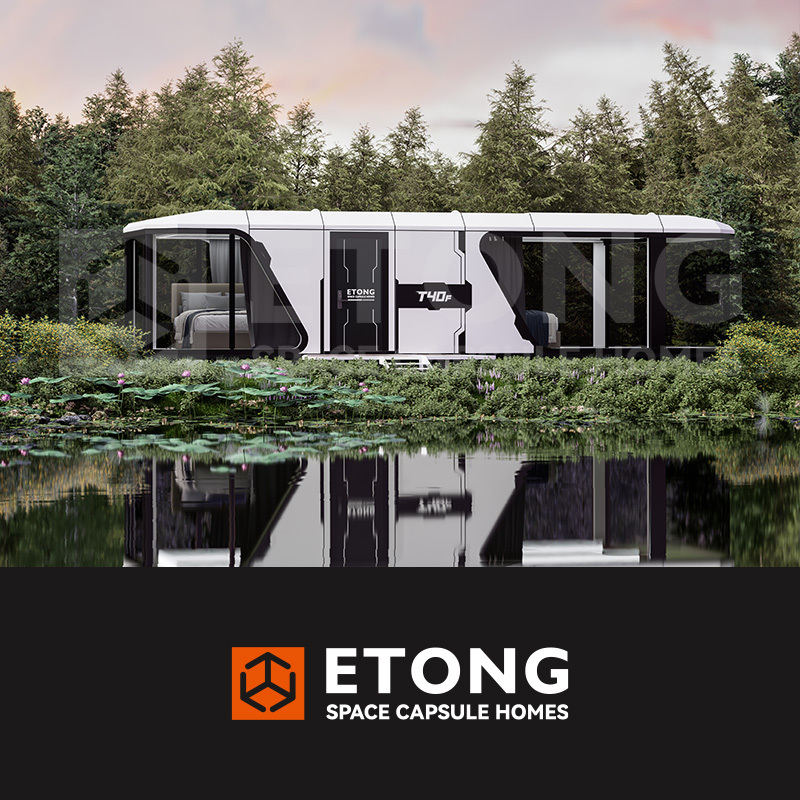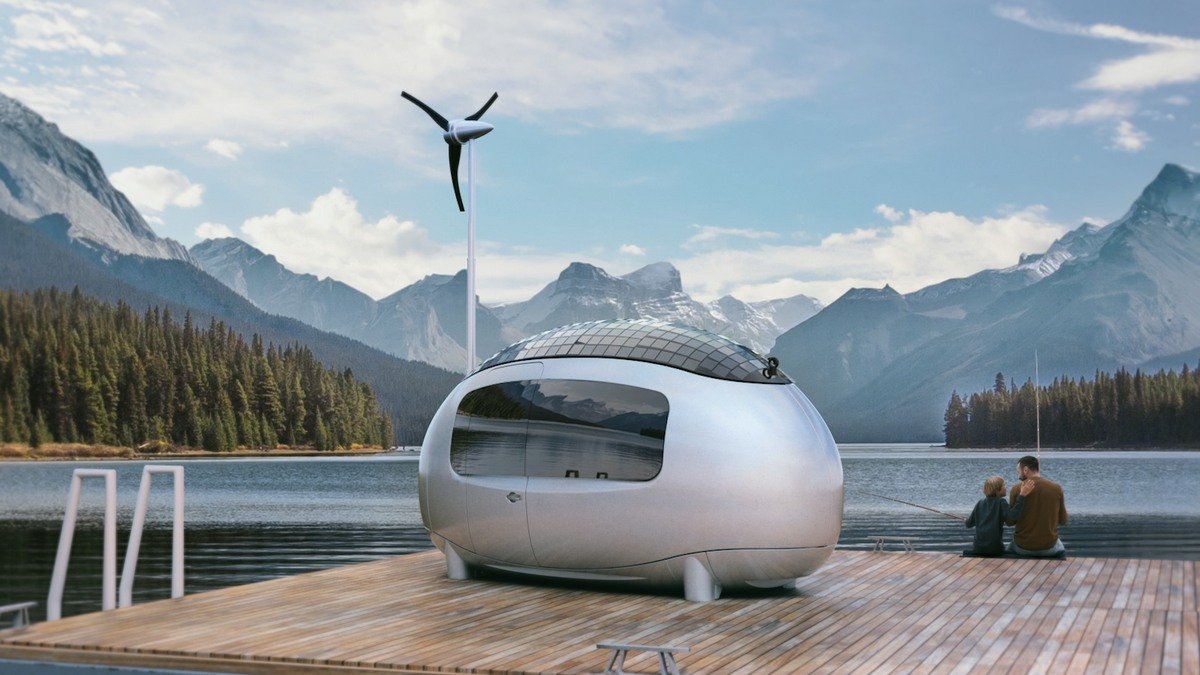Discover the Charm of Minimalist Living with Capsule Houses
Discover the Charm of Minimalist Living with Capsule Houses
Blog Article
Why Modular Homes Are the Future of Sustainable Living
Modular homes are increasingly recognized as a crucial solution for sustainable living, using a mix of performance, cost-effectiveness, and ecological advantages. Their construction in regulated settings considerably reduces waste and boosts precision, while the potential for incorporating advanced energy-efficient systems places them as a forward-thinking choice in housing. The adaptability of modular designs permits for the combination of sustainable technologies and products customized to specific requirements. As we browse the obstacles of urbanization and environmental sustainability, one must consider how these homes can redefine our strategy to living areas.
Environmental Benefits of Modular Houses
The ecological advantages of modular homes represent a substantial action towards lasting living. These homes are built in regulated manufacturing facility setups, which substantially lowers waste generated during the building process. By maximizing materials and minimizing excess, modular construction adds to an extra reliable use resources contrasted to conventional building methods.
Additionally, modular homes are typically created with energy efficiency in mind. Many integrate sophisticated insulation methods, energy-efficient windows, and sustainable materials, adding to reduced energy consumption. This can cause minimized greenhouse gas discharges over the life expectancy of the home, enhancing its general environmental account.
The capacity to transport and put together modular elements on-site additionally reduces the carbon impact connected with building and construction logistics. Several modular homes are built to be versatile and conveniently upgradeable, allowing property owners to implement lasting modern technologies, such as solar panels and energy-efficient home heating systems, over time.
Inevitably, the ecological benefits of modular homes not only advertise lasting living yet also urge a more responsible technique to real estate development, straightening with global initiatives to deal with climate modification and maintain natural deposits for future generations.
Cost-Effectiveness and Cost
Structure a home frequently stands for one of the biggest economic investments individuals make in their lifetime, and modular homes offer a compelling option for those looking for cost-effectiveness and cost. One of the main benefits of modular homes is their reduced building expenses compared to typical site-built homes. The structured production procedure permits for significant savings on labor and products, which translates to reduce costs for consumers.
Additionally, modular homes commonly have much shorter building and construction timelines. This not only reduces costs connected to financing and insurance however additionally mitigates the threats connected with inflation and varying market conditions. Numerous customers locate that modular homes can be tailored to fit their budgets without sacrificing top quality or design.
Additionally, power efficiency is typically developed into the design of modular homes, resulting in minimized utility bills over time. Many manufacturers prioritize lasting products and methods, even more improving the lasting economic feasibility of these homes. In general, the combination of first price financial savings, fast construction, and continuous power effectiveness makes modular homes an appealing option for those aiming to purchase sustainable living without damaging the bank.
Performance in Building
Modular homes not only use monetary benefits however also master construction performance. The modular building procedure includes the synchronised building of modules in a manufacturing facility setting while website special info prep work takes place simultaneously. This parallel strategy substantially reduces the general timeline from conception to conclusion, typically reducing building time by as much as half compared to standard methods.
Moreover, factory-controlled environments improve quality control. By utilizing accuracy production techniques, modular homes are constructed to precise specs, minimizing waste and errors. This uniformity not only causes a greater quality product however also adds to sustainable methods by lowering product waste during building and construction.
In addition, the use of contemporary innovation and automation in the manufacturing process permits quicker setting up and lowered labor prices. Once the modules are moved to the website, they can be efficiently constructed, even more speeding up the timeline. This structured procedure is not just beneficial for building contractors but likewise minimizes disruptions to the surrounding environment during building.
Personalization and Design Flexibility
An outstanding range of customization alternatives differentiates modular homes, enabling property owners to customize their home to fulfill particular requirements and preferences. This design versatility is a characteristic of modular construction, making it possible for customers to pick everything from layout and room formats to components and surfaces. Unlike conventional homes, modular designs promote a joint strategy where architects and builders function closely with home owners, making certain that each element aligns with aesthetic needs and private lifestyles.
Furthermore, modular homes can be easily reconfigured or increased, fitting changing family members characteristics or developing personal preferences. This adaptability not just boosts the home's functionality however also adds to long-term sustainability, as house owners can customize their spaces instead than look for new housing services.

Future Patterns in Lasting Housing
Arising patterns in lasting real estate are improving the landscape of domestic construction, highlighting environmentally friendly techniques and ingenious innovations. One substantial trend is the integration of clever home technology, which improves power efficiency with automated systems that monitor and maximize power consumption. This not only minimizes utility expenses yet also adds to a reduced carbon impact.
Furthermore, making use of lasting materials is ending up being significantly usual. Builders are deciding for reused, in your area sourced, or rapidly sustainable materials, which reduce ecological impact and support local economic situations. Modular homes are getting appeal for their minimized waste throughout building and construction and their flexibility to numerous terrains and climates.
Another trend is the incorporation of eco-friendly roofing systems and living walls, which boost air top quality and give all-natural insulation. These attributes additionally advertise biodiversity in urban locations.
Verdict
Finally, modular homes become a crucial solution for lasting living, supplying substantial ecological benefits through reduced waste and energy efficiency. Their cost-effectiveness and affordability resolve the expanding housing needs in city locations, while effective construction procedures boost general productivity. The fundamental customization and layout adaptability satisfy diverse preferences and needs. As fads in sustainable housing advance, modular homes are Read More Here poised to play a critical role in advertising environment-friendly living methods for future generations.
Structure a home often represents one of the biggest monetary investments people make in their lifetime, and modular homes use a compelling solution for those seeking cost-effectiveness and cost. One of the key advantages of modular homes is their reduced construction expenses contrasted to standard site-built homes. Overall, the combination of first cost savings, quick building and construction, and continuous power efficiency makes modular homes an eye-catching alternative for those additional hints looking to invest in sustainable living without breaking the financial institution.
Ultimately, the personalization and layout flexibility provided by modular homes ensure that they are not simply frameworks, but personalized shelters that mirror the unique identities of their owners while advertising sustainable living practices.

Report this page